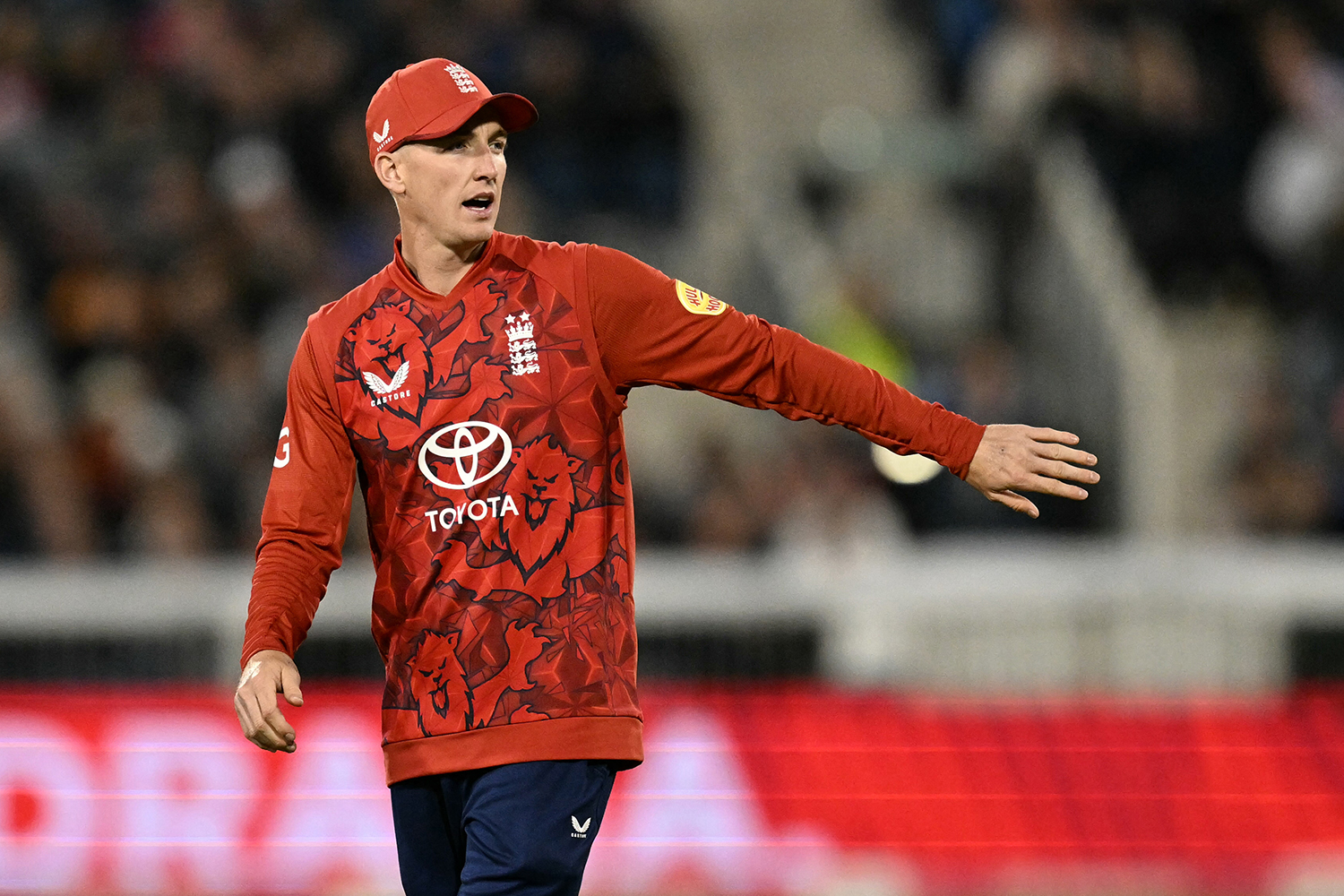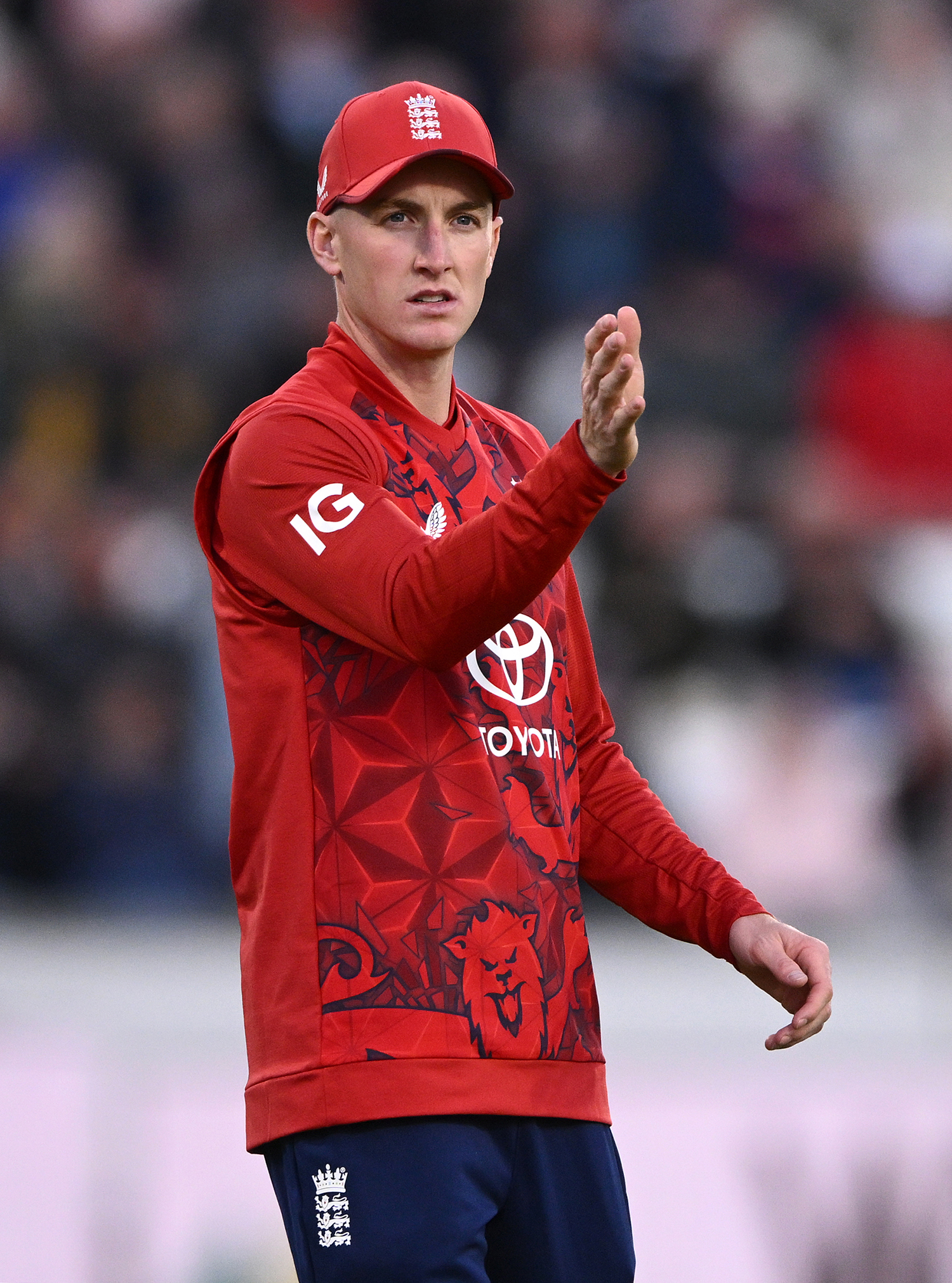Rain delays can induce an almost hallucinatory boredom, but I know what I saw. As England re-emerged under a slate sky, midway through the seven-wicket ODI demolition of the West Indies at The Oval, a flurry of flailing limbs flickered among the crowd. Harry Brook cartwheeled onto the pitch.
Now, Ben Stokes is many things, but he isn’t a cartwheeler. Neither is Brendon McCullum. Jos Buttler’s late-era captaincy vibe was “has seen things, and doesn’t want to talk about them”. Come to think of it, Brook might be the first England men’s cricket captain ever to cartwheel. He’s also the first leader in the Bazball Cinematic Universe who lives and breathes the lightness and joyous freedom the underpinning philosophy advocates.
This matters. For McCullum, Stokes and even England Lions coach Andrew Flintoff, Bazball is a conscious rejection of their inexorable intensity and obsession, of the wider English proclivity towards reactionary self-immolation and crisis. Yet Brook believes in aggressive, attacking cricket because of its capacity for entertainment and unifying enjoyment. He can lead by example simply by being himself. The main takeaway from his first ODI series as permanent captain? “It’s a hell of a lot of fun when you’re enjoying it with a lot of mates.”
After six wins from the 24 ODIs and six from the 14 T20s before Brook’s ascension, a captain of such genuine epicurean motivation can only be positive. Recent white-ball tours had even managed to make weeks in Antigua and Ahmedabad miserable.
“It’s a new era,” Brook beamed after the 238-run win at Edgbaston, England’s second-biggest ODI win ever. “We’re trying to forget about the past”. Success is the best amnesiac in sport, and four victories across two formats is ideal fuel to forget.

It can be easy to focus on captains’ overarching dogmas, but Brook’s vision of “looking to put pressure on the bowlers when you’re batting, always looking to try and take wickets and chase the ball hard to the boundary” is not revolutionary. Brookball is really white ball Bazball, an unsurprising development when McCullum is head coach and Brook has only ever played Test cricket under Stokes.
More interesting is how rapidly Brook seems to have enacted effective change and asserted his authority. The West Indies have been inconsistent and poor, but England have long struggled against inconsistent and poor. Across the ODI whitewash, England scored faster through the first 10 overs than any 50-over team has before – 9.6 runs an over. At Edgbaston, the top seven all reached 30 for the first time in an ODI. There are the early indicators of revolution.
He constantly twitches and tweaks in the field like he’s waiting for a bus he can’t miss
He constantly twitches and tweaks in the field like he’s waiting for a bus he can’t miss
Dutifully repeated by Joe Root and Will Jacks last week, Brook said the mantra of his ODI captaincy is “you have more time than you think”. Jacks’s redeployment at No 7 in both formats is this idea manifest, effectively affording his teammates more time by alleviating pressure. What to do with this spot will be the dull debate of the Brook era across both formats, especially with traditional wisdom suggesting four frontline seamers would be necessary in southern Africa for the 2027 Cricket World Cup.
The other great innovation is the re-education of Jamie Smith, McCullum’s brainchild. Smith had never opened professionally before these series, but averaged 34 across the three ODIs – striking at 180 – before slashing 38 off 20 balls at Durham. His power-hitting at The Oval and Durham was astonishingly crisp and ambitious.
One of the hallmarks of Brook’s early leadership is his willingness to reject convention in his bowling selection, not utilising spin until 14 overs into the Oval victory but handing recalled left-arm spinner Liam Dawson the new ball at Durham. Both decisions were vindicated – England were 80-3 after those first 14 overs and Dawson took 4-20. In fact, Durham was the first home T20I ever in which England picked just two seamers: Brook said it was preparation for next February’s T20 World Cup in India and Sri Lanka. He suggested the left-arm/right-arm pair of Adil Rashid and Dawson, 37 and 35 respectively, form the foundations of his first-choice attack.
Newsletters
Choose the newsletters you want to receive
View more
For information about how The Observer protects your data, read our Privacy Policy
His field settings are unorthodox and aggressive, occasionally to a fault – for Adil Rashid’s hat-trick ball in the final ODI, Brook brought 10 fielders inside the circle and Gudakesh Motie cleared the ropes. Across the ODIs, Brook fervently deployed a leg slip and avoided an extra cover whenever possible, constantly tinkering and rearranging from a vantage point near the bowler – and sometimes behind them.
“It’s just a matter of trying to put the fielders in certain areas to try and make them hit it where they don’t want to hit it,” he said about captaining spinners.
Unsurprisingly, Brook made mistakes too, not least in trusting short-pitch bowling at the Windies tail long after it was proven eminently hittable at The Oval. He described this as a period when “we were kind of stuck in between plans” and said decision-making was “bits and bobs of both” his own and the bowlers’ as he adjusted to the necessary pace. England were still warned twice about a slow over rate on Tuesday. A no-ball was called at Durham for having a forbidden three fielders behind square for Roston Chase’s first ball, a reminder of his callowness. Balance and intuitive planning won’t come instantly. He can at least utilise the experience of his de facto leadership group: two former captains in Buttler and Joe Root, alongside Ben Duckett.
Part of this is a natural consequence of Brook’s inexperience with the format – he’s played 70 senior List A or ODI innings. InFor contrast, Buttler has played 450.
Yet the white-ball gig is something between an audition and a precursor for Brook’s inevitable assumption of the Test role, the first all-format captain since Alastair Cook. Rob Key and co have long considered him Stokes’ natural successor, a similarly talented acolyte of the new English way. His repeated prioritisation of international and red-ball cricket over franchise leagues also really helps here.
Brook lacks Stokes and McCullum’s animal magnetism, or even Eoin Morgan’s simmering anger – he’s unlikely to lead a cult of personality, but that’s not a prerequisite for success. He self-describes as “a fairly simple cricketer and person”. A regenerated Buttler called the standout feature of Brook’s early captaincy his “authenticity”. In his first press conference as permanent captain, he said “alright?” to the waiting media and was surprised they didn’t reply in kind.
Brook bats with an incomparable clarity and stillness, all clean lines and clear air, averaging 65.5 across the three ODIs despite not producing close to his best. But as captain, he constantly twitches and tweaks in the field like he’s waiting for a bus he can’t miss, compulsively tucking and untucking his shirt and drying his hands. Every instruction is overacted, although he’s a great, purposeful pointer, made for a second life on airport runways. He bears the responsibility of captaincy with every sinew, not yet comfortable with the lack of control. Most people never are.
Brook is England’s present and future, but is still defined by a remarkable, almost self-deprecatory humility. He grins unrepentantly, and calls his teammates “awesome” and “epic”. He wears shirt No 88 because of the bingo call. He still occasionally turns out for his local club, Burley in Wharfedale CC. Perhaps most importantly, he cartwheels.
Photographs by Oli Scarff & Stu Forster/Getty Images

